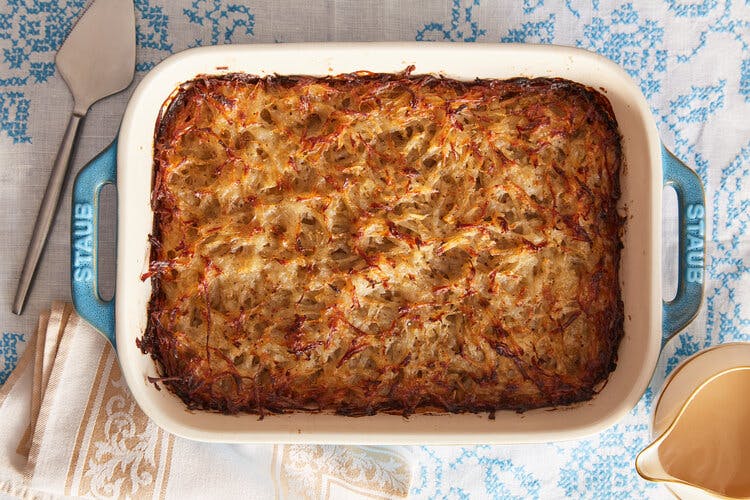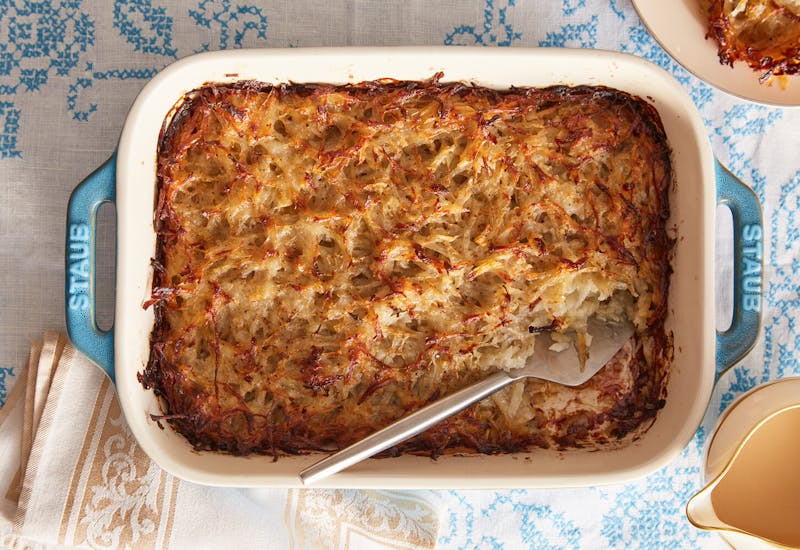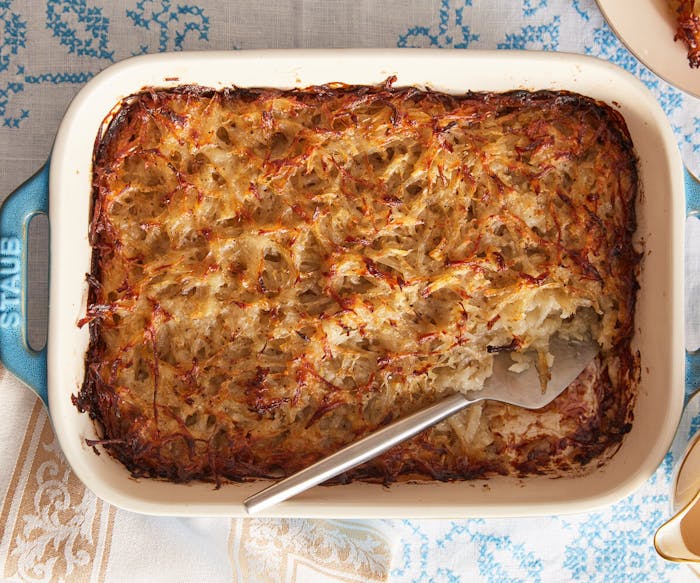David Glick spent Thanksgivings when he was a little at his grandmother’s home in the Bronx. Next to the turkey and other American classics, there was always yapsuk, which David describes as “a potato kugel or latke on steroids. Hearty, delicious, perfect with turkey gravy.” The recipe was so beloved and integral to the Glick family that David’s brother Aaron wrote a poem about the dish when he was in middle school.
The yapsuk recipe has its roots in Poland, where David’s grandmother Gussie grew up in a shtetl in the town of Klobuck. When she was young, yapsuk was cooked in a communal oven nearby, picked up after synagogue on Saturday, and served for lunch along with cholent. After the meal, she and her siblings went out — “Shabbos afternoon my parents had sex. They chased us out so that they could have sex," Gussie explained to Aaron in a family interview before she passed away.
Saturday traditions were sharply interrupted when she was 16 and World War II broke out. The family was torn apart and Gussie was transferred from one concentration camp to another and finally to Bergen-Belsen, where she saw the camp liberated in 1945. After the war, she reconnected with Abe Glick, who grew up nearby in Klobuck. Together, they moved to the United States and got married, settling in the Bronx.
“My grandfather was the slipcover king of New York,” David says. Abe and Gussie sewed fabric and plastic furniture covers together and settled into a new country — rarely talking about her life in Europe until late in her life.
She doted on her grandchildren, David explains. Yapsuk was beloved by David and his brother, so making it became a labor of love. Gussie served it not only on Thanksgiving, but Passover and other times the family gathered. When David was about 18 years old, he decided he wanted to capture the yapsuk recipe. “A lot of our family traditions were deleted from our collective memory except for one,” he explains. He didn’t want the yapsuk to be lost.
He asked Gussie if she could make it and said he would write down the recipe. He faithfully transcribed her actions on a note card. At the time, no one outside of the family knew of yapsuk, David explains. If you search for it online, there are almost no matches. But, at Gussie’s funeral, a rabbi said it sounded similar to yapchik, a potato kugel made with chunks of meat, which may have been the root of yapsuk generations ago.
To be extra certain the family recipe would never be lost, David explains. When he first got a Gmail account years ago, he copied the recipe there, he says: “so it would be there in perpetuity.”


